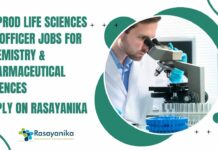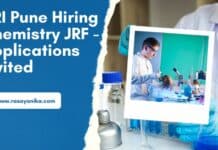Chemists at The University of Texas at Arlington have devised a safer, more environmentally friendly, less expensive and more efficient water-based system for the synthesis of organic compounds typically used in pharmaceuticals, agrochemicals, cosmetics, plastics, textiles and household chemicals.
Most organic synthesis depends heavily on volatile organic solvents, which typically pose significant environmental and health hazards and also are costly.
“Our new system could facilitate cheaper, safer and more efficient industrial reactions across a variety of sectors dependent on synthesis of organic compounds,” said Morteza Khaledi, dean of UTA’s College of Science and co-investigator of the project. “Using water as a solvent is ideal as it is benign, plentiful, cheap and not harmful to the environment.”
The new medium, 80-90 percent water with fluoroalcohol, supports the synthetic reaction of organic compounds and even produces considerably higher yields of product than pure organic solvents.
The system also demonstrates the additional advantage that the mixture forms two separate phases during the reaction, which means that the resulting products can be easily separated and centrifuged out of the mixture. Typically, additional organic solvents are used to facilitate the separation and extraction of product.
“This is a clear step forward towards a “green” organic
synthesis process and fits into UTA’s strategic focus on Global Environmental Impact within the Strategic Plan 2020,” Dean Khaledi said. “The organic solvent can even be recycled after the reaction, which is an additional bonus for the environment. ”These efficiencies are outlined by Dean Khaledi and his co-investigator, Nathaniel Weisner, a chemistry graduate student at North Carolina State University, in the Royal Society of Chemistry Green Chemistry paper, “Organic Synthesis in fluoroalcohol-water two-phase systems.”
Co-investigator Nathaniel Weisner of North Carolina State University added “We stumbled onto this reaction when we were investigating a completely different project. However, this “serendipitous” research really opens up whole new opportunities to improve the environmental impact of the organic synthesis process that is the basis of so many of the products that surround us.”
Dean Khaledi joined UTA in early 2015 as Dean of Science, after chairing the chemistry department at North Carolina State University. He is an unquestioned leader in separation science, an important branch of analytical chemistry, who is particularly known for his studies of certain separation methods like micellar electrokinetic capillary chromatography, a useful technique for analyzing a wide variety of small molecules.
His current research is focused on a new class of coacervates, or tiny droplets of assorted organic molecules. The novel coacervates are effective for extracting and enriching a variety of chemicals from biological and environmental samples. They also help in characterization of the proteins within a cell, a process with applications in the areas of drug discovery, biology and biomedicine.
Other areas of research include protein identification and characterization, portable biosensing and electrokinetic chromatography.

















































